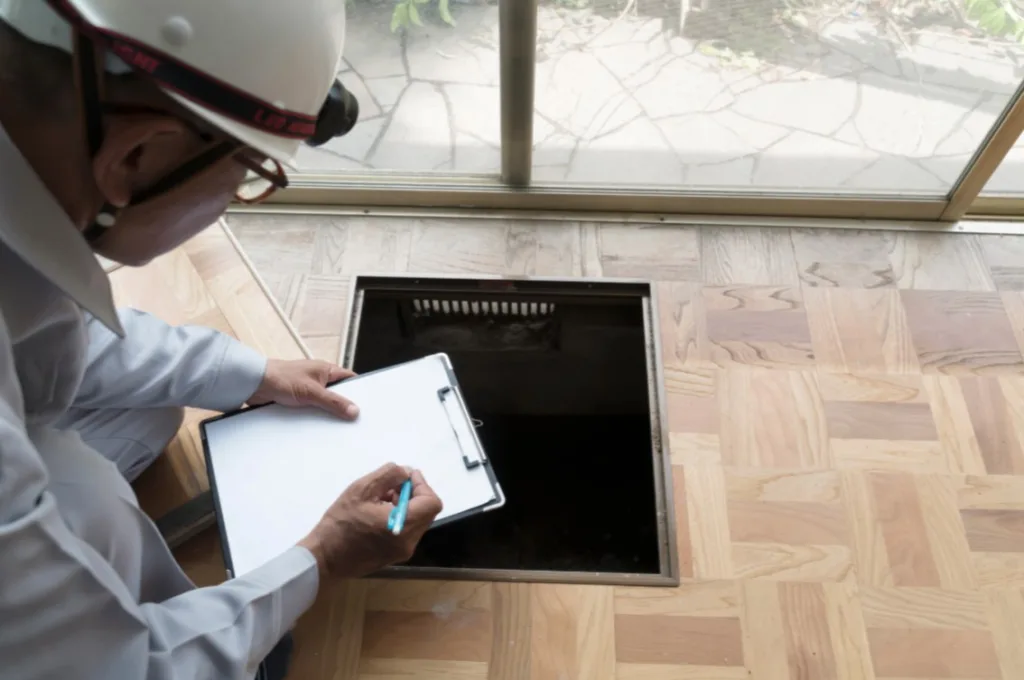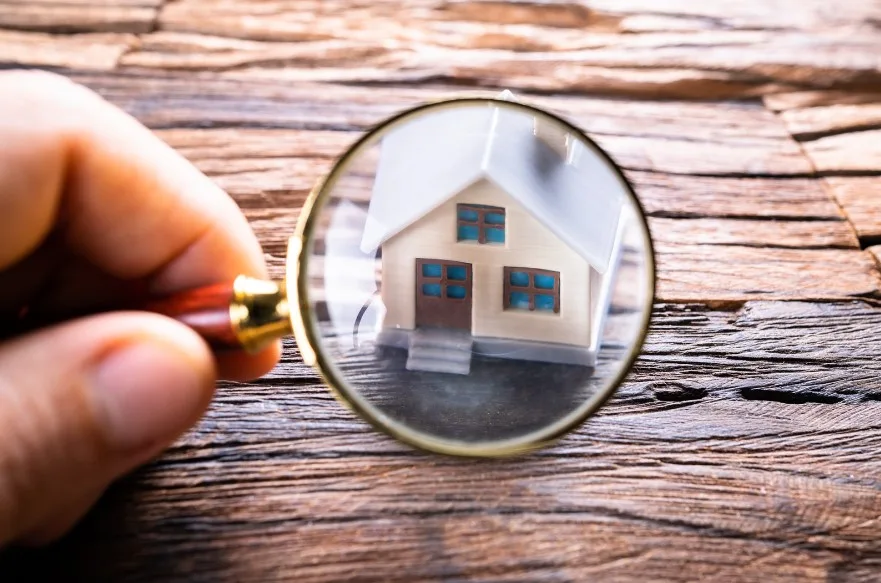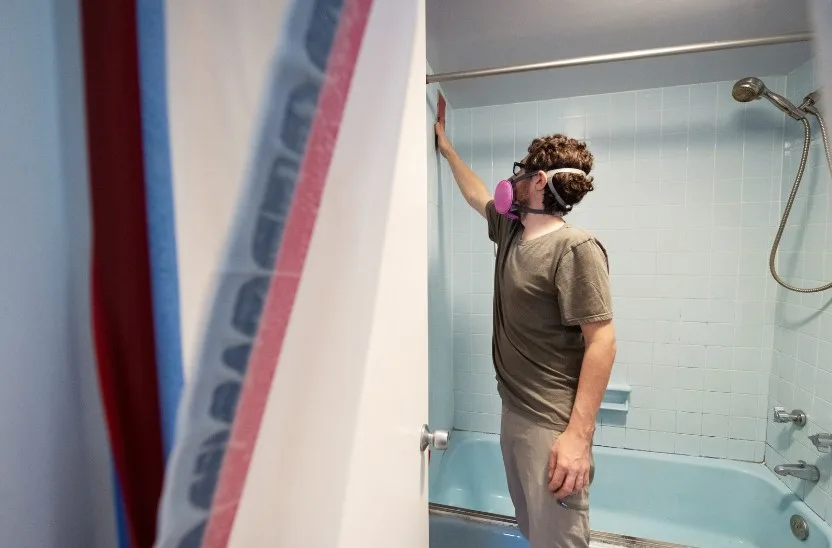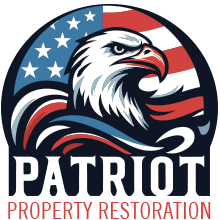
With New Jersey’s humid climate, many homeowners face the challenge of mold growth, a problem that can lead to significant health risks and structural damage if not addressed promptly.
Mold, especially toxic mold, is not something you want lurking in your home. Exposure to mold can lead to various health issues, from allergies to more severe respiratory problems.
A professional mold inspection and mold testing done by a certified mold inspector is the first step towards resolving a potential mold issue.
But what does a local certified mold inspection involve? How do you know if you might have a mold problem? And what happens if the inspection reveals mold? The process of mold inspection, mold testing, and mold remediation in New Jersey will equipped you with the knowledge to tackle any mold-related issues head-on and maintain a healthier, safer living environment.
A Threat to Indoor Air Quality in New Jersey Homes
Mold is a pervasive problem that can cause significant health risks and damage to your home or building if not addressed promptly. In the humid climate of New Jersey, mold contamination is particularly common, making regular Jersey mold testing an essential part of home maintenance.
Types of Mold Commonly Found in New Jersey Homes
There are several types of mold that can infest your home, but three types are most commonly found in New Jersey homes: Cladosporium, Penicillium, and Aspergillus. Cladosporium usually grows on fabrics, wood, and other damp, porous materials. Penicillium is often found on materials that have been damaged by water, while Aspergillus is typically found in dusty areas or HVAC systems.
All these molds can be harmful, especially when their spores are released into the air, impacting indoor air quality. That’s why mold inspection and testing are highly recommended if you suspect any mold presence in your home. Additionally, mold inspections are crucial in the construction industry to ensure the safety and quality of buildings.
Health Risks Associated with Mold Exposure
Mold exposure can lead to a variety of health problems. When mold grows, it produces allergens and irritants, which, when inhaled, can trigger allergic reactions, including sneezing, red eyes, skin rash, and a runny nose. In some cases, mold exposure can also lead to more severe health issues such as respiratory problems and asthma attacks.
A significant percentage of our clients have health concerns related to mold exposure. People with compromised immune systems and those with chronic lung illnesses are at a higher risk of severe infections from mold. Therefore, maintaining a high indoor air quality by controlling mold spores’ spread is paramount.
Signs Indicating the Presence of Mold in Your Home
Identifying mold contamination early can save you from potential health risks and costly mold remediation. Here are some signs indicating the presence of mold in your home:
- Visible mold growth: This is the most obvious sign. Mold comes in various colors, including black, white, green, or grey, and can have a fuzzy or slimy appearance.
- Musty odor: If your home has a persistent musty smell, it could indicate hidden mold growth.
- Water leaks or past flooding: If your home has had water issues, chances are you could have mold.
- Health symptoms: If anyone in your home experiences allergic reactions or respiratory problems without any apparent reason, it could be due to mold exposure.

The Mold Inspection Process: What Do Mold Inspectors Look For?
Understanding the mold inspection process with our expertise can help alleviate any concerns you may have and allow you to be better prepared. When it comes to mold, knowledge is power, and knowing what to expect from a Jersey mold inspection can empower you to actively participate in maintaining your home’s health.
When conducting a thorough mold inspection and testing, our certified mold inspectors focus on several key areas.
Visual Inspection for Mold and Moisture – Our mold inspectors meticulously examine your property, checking for visible signs of mold growth and any sources of moisture that could foster it. This visual assessment covers walls, ceilings, floors, and hidden spaces where toxic mold might thrive.
Testing Services and Mold Tests – Utilizing cutting-edge equipment, our testing services include taking air and surface samples to analyze for mold spores. These mold tests help identify the type and concentration of mold present in your environment.
New Jersey Mold Testing Expertise – As seasoned environmental consultants in New Jersey, we specialize in mold inspection and testing. Our expertise in this region enables us to understand the specific environmental factors that encourage mold growth in local properties.
Inspection of HVAC Systems and Building Materials – Our inspection extends to HVAC systems, examining ducts and vents for mold presence. Additionally, we thoroughly assess building materials like drywall and insulation, seeking signs of mold infestation or water damage.
Comprehensive Assessment by Mold Inspectors – Our certified mold inspectors bring a comprehensive approach to evaluating your property’s mold status. From identifying past water intrusions to examining humidity levels, we leave no stone unturned in determining potential mold growth areas.
Mold Testing Recommendations – Following the inspection and mold testing processes, we compile a detailed report outlining our findings and provide recommendations. These may include suggested repairs, moisture control measures, or professional mold removal services based on the severity of the mold issue.
Our commitment to offering top-notch mold testing and inspection services in New Jersey ensures your property remains a safe and healthy environment.
What Happens During a Mold Inspection?
A mold inspection typically begins with a thorough visual examination of your property. Certified mold inspectors look for signs of water damage, discoloration, or visible mold growth. They will check both inside and outside your home, focusing on areas prone to dampness and moisture.
In addition to the visual examination, the inspector will ask you about any past water damage, current symptoms, or any visible mold that you’ve noticed. This information will help them understand the potential causes and sources of mold in your home.

Tools and Techniques Used by Inspectors During A Mold Inspection
Mold inspectors use a variety of tools and techniques to detect mold. This may include moisture meters to measure the moisture level in walls, ceilings and floors, infrared cameras to detect hidden water leaks, and borescopes to look inside walls or other hard-to-reach places.
One of the key components of a mold inspection is indoor air quality testing. This involves collecting air samples from various locations in your home to test for mold spores. Surface samples may also be taken by swabbing or tape lifting. These samples are then sent to a lab for analysis.
Time Taken for a Typical Mold Inspection
The time taken for a mold inspection can vary depending on the size of your home and the extent of the potential mold problem. However, most inspections take between two to five hours. After the inspection, it usually takes a few days for the lab to analyze the samples and produce a mold inspection report.
This report will detail the types and concentrations of mold in your home, providing a comprehensive understanding of any mold issues your property may have. If mold is detected, the next step would be mold remediation, where professionals eliminate the mold and address the source of moisture causing it.
Choosing a Mold Inspection Company: What to Consider
When it comes to safeguarding your home and health against mold risks, selecting the right mold inspection company in New Jersey is crucial. With numerous options available, making the best choice is essential. Here’s what to consider and why choosing Patriot Property Restoration Services for your New Jersey mold inspection is your optimal choice.
Certification: Our certified mold inspectors undergo rigorous training and hold qualifications that ensure accurate identification and assessment of mold problems. Trusting a certified team means relying on expertise grounded in mold science.
Experience: With years in the field, our extensive experience ensures a thorough and accurate inspection, providing you with reliable results and guidance.
Reputation: Our stellar reviews and satisfied customers speak volumes about our commitment to quality and excellence.
Insurance: We’re fully insured, covering any potential damages during the inspection process for your peace of mind.
Detailed Reports: Expect comprehensive reports detailing mold types, locations, and recommended remediation steps, ensuring a clear understanding of the situation.
During your selection process, consider these crucial questions when looking for a mold inspection company:
- Are your inspectors certified, and can you provide proof?
- How extensive is your experience in conducting mold inspections?
- What tools and techniques do you use for mold detection?
- Does your inspection cover indoor air quality testing?
- What’s the timeline for the inspection and when can I expect the report?
- Do you offer mold remediation services or provide reputable recommendations if mold is found?
Why Choose a Certified and Experienced Mold Inspector?
Hiring a certified and experienced team guarantees precise identification of mold types and assessment of the issue’s extent, offering effective remediation strategies. Entrust your property and health to professionals who accurately pinpoint and address mold concerns.
Why Mold Inspection Demands Professional Expertise
Dealing with mold requires specialized tools and expertise beyond DIY efforts. Opting for a certified and experienced mold inspection service ensures proper identification, understanding, and implementation of effective remediation strategies. Timely action and thorough inspections protect your home and health from potential mold risks.
Patriot Property Restoration Services is the trusted choice for New Jersey mold inspections, providing professional expertise and ensuring your property stays safe and mold-free.
